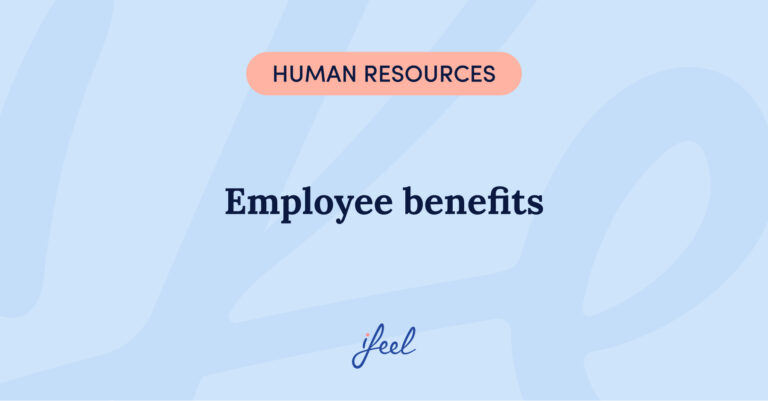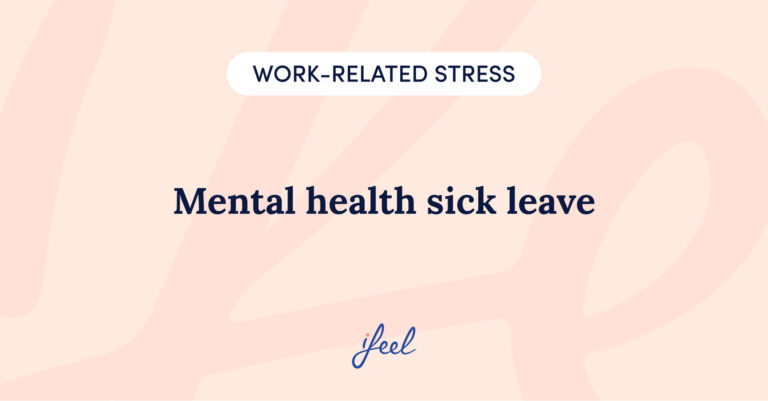Compassion fatigue can be defined as the feeling of dissatisfaction and psychological exhaustion that comes from never being able to satisfy others’ needs. The person who suffers from it perceives that they must reach a goal: to be someone who can solve the other person’s problem. Therefore, this can overwhelm them psychologically and is not suitable for their well-being.
Keep reading to find out more about compassion fatigue and how it can affect employees’ well-being inside and outside the work environment.
What is compassion fatigue?
Compassion fatigue is a risk associated with some professions that, by definition, are based not only on caring for others but are strictly oriented toward alleviating their discomfort or suffering. The paradigmatic example of this would be the health professions, although it can also occur in contexts external to work: family, friendship, or relationships.

The problem lies in the intensity
Caring for other people and helping them out of compassion or concern consistent with what is happening to them is not bad in itself. On the contrary, it is essential for the world to work and for us not to live in a soulless jungle where no one does anything for anyone. The critical point in determining the extent to which this is problematic lies in the intensity factor.
Taking on a very intense responsibility to solve their problems, manage the care they need, and ensure their physical and psychological well-being. The problem arises when we systematically devote ourselves to helping the people around us. In this way, we take on an excessive responsibility that overloads us.
When we talk about responsibility, we are talking about responding, implementing concrete behaviors aimed at achieving and organizing the well-being of the other, and reacting in our minds and emotions to their needs. Responsiveness at this level (i.e., systematically positioning ourselves as the usual caretakers of one or more people) can be stressful since no one can take care of other people so intensely.
Excess empathy
Empathy, as defined by Britannica, “is the feeling that you understand and share another person’s experiences and emotions”. It is an essential mechanism for coexistence and is so crucial for our survival that we always greatly value the empathy of others and greatly regret its absence.
Compassion fatigue refers to a systematic excess in our response, which has to do with an excess in the attribution we make to ourselves of the responsibility for the well-being of the other. Thus, they are always the important ones, and our needs remain in second place, postponed or made invisible.
Invisibilized not only on their part since that person is focused on their own needs and does not see ours. Invisibilized also on our part: in a certain sense, everything we do to take care of someone (taking care of them, solving their problems, managing their affairs), we are not taking care of our affairs, concerns, or responsibilities, which remain outside our focus of attention.
Stress: we can’t accomplish everything
Therefore, it may be the case that, in addition to feeling that by taking care of relieving the other’s discomfort, I “do not get to” do my own thing. I leave things undone; I am not fully involved in what I have to be; I feel frustrated and too much under pressure because of the other’s needs and how responding to them takes time and energy away from responding to my own needs.
This is all probably accompanied by a mixture of anger with the other and with myself and a certain feeling of guilt precisely for getting angry or complaining in this way, given how bad the other is and how much they need someone to take care of them – for example, me.
How does one develop compassion fatigue?
It is a learning experience. Somehow, without realizing it, throughout my life, I have learned to position myself as the primary caregiver/responsible for the people around me. I understand to be that person who is available, helpful, caring, and intelligent and who knows how to solve problems, and has the enormous generosity and willingness to be there for the needs of the people I care about, regardless of their degree of autonomy.
Sometimes we learn these roles progressively and unconsciously: it is what we see at home, and we adopt it by imitation, or it is what we have been taught that it is good to do. These are the values passed on to us by people who had particular relevance in our upbringing.
In other cases, this process is not so unconscious. It is influenced by particular events in our lives that specially marked us and made us conclude that we have to take responsibility for taking care of others. We felt obliged to do so and began to receive positive reinforcement and validation that made it easier for this way of reacting to the needs of others to become firmly established in our emotional, cognitive, and behavioral repertoire.

Compassion fatigue at work
There are many ways in which this manifests itself in the different relationships of the person suffering from this compassion fatigue (which is nothing more than a burnout due to excessive empathy or empathy that is not always well understood).
It can also be transferred to the work environment, even indirectly. We can see compassion fatigue in people who tend to monopolize responsibilities, have difficulty delegating, or spend too much energy attending to their colleagues’ requests for help (even at the risk of neglecting their duties).
They can also be people who literally single-handedly shoulder the burden of everyone’s well-being, the achievement of objectives, and the success of the company’s mission. This, in the short term, can be very effective for some colleagues and the team as a whole. However, it is not sustainable for the individual whose compassion fatigue will eventually develop into a burnout that will worsen their performance and experience throughout the employee life cycle.
Emotional well-being program for companies
At ifeel, we are well aware of the problems that compassion fatigue can generate in the psychological well-being of people, both inside and outside the workplace. Our team of psychologists, experts in well-being at work, has created an emotional well-being program for companies, which can help you improve specific issues when an excess of involvement with people and work turns against us.
In our Resources section, you will find valuable material, such as podcasts, HR guides, or interviews with top HR managers. In addition, we have a Psychosocial Risk Factors Template, which you can use to comply with the requirements of the Labor Inspectorate.
With our emotional well-being program, your company’s HR managers will receive personalized, data-driven advice on how to improve the psychological well-being of their teams. In addition, this program offers employees a 360° mental health care service structured at different levels according to their needs. Try our program now so you can see how it could help you.
We hope you found this post about compassion fatigue interesting. Do not forget to check out this article on the stigma associated with mental health. If you would like more information about our emotional well-being program for companies, simply request it here, and we will contact your team as soon as possible.











